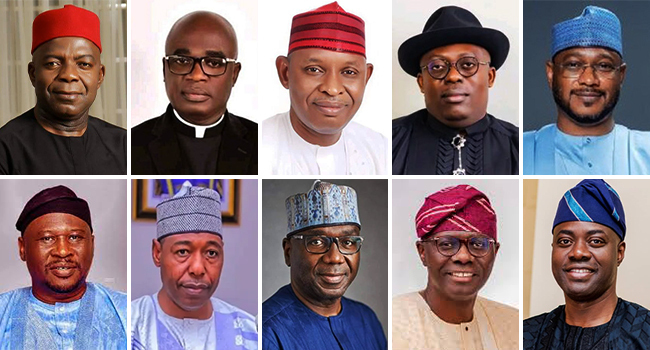The fiscal responsibility of Nigerian state governors has come under intense scrutiny following revelations of substantial spending on domestic and international travel. Between January and June 2025, 29 governors expended a total of N79.97 billion on travel, a 14.72% increase compared to the same period in 2024. This extravagant spending has sparked public outrage, particularly given the backdrop of rising state debts, underwhelming revenue generation, and increasing hardship faced by citizens. The concern is further amplified by calls for reduced governance costs and a greater focus on essential services. This pattern of spending raises serious questions about the governors’ commitment to fiscal prudence and responsible allocation of public funds.
A deeper analysis of state budget performance reports for the first two quarters of 2025 reveals a concerning disconnect between travel expenditure and the attraction of foreign investment. Despite the billions spent on trips purportedly aimed at attracting investors, only six states – Lagos, Ogun, Oyo, Kaduna, Kano, and Ekiti – successfully attracted capital importation during the first quarter of 2025. The Federal Capital Territory, which is not included in the governors’ travel expenditure analysis, attracted the largest share of foreign investment. This disparity underscores the questionable effectiveness of these costly trips and raises doubts about the strategic planning behind them. It begs the question of whether these trips are genuinely aimed at attracting investment or serve other, less transparent purposes.
Furthermore, the analysis exposes a lack of transparency in fiscal reporting among the states. While 26 states published their financial records for both the first and second quarters of 2025, several states, including Benue, Lagos, Delta, and Katsina, only released their first-quarter reports. Others, such as Akwa Ibom, Enugu, Ogun, Rivers, and Plateau, failed to publish any financial records for the period, raising concerns about accountability and potential mismanagement of public funds. This lack of transparency makes it difficult for citizens and oversight bodies to assess the true extent of government spending and its impact on development.
A breakdown of travel expenses by state reveals vast discrepancies in spending patterns. Lagos State, Nigeria’s commercial hub, recorded the highest expenditure at N6.23 billion for the first quarter alone, followed closely by Osun State at N6.21 billion. Kano State led spending in the North with N5.58 billion. Other high-spending states included Taraba, Bayelsa, Ekiti, Borno, Cross River, Yobe, and Edo. These significant variations in spending raise questions about the factors driving these differences and whether they reflect genuine needs or discrepancies in financial management practices. The fact that some states with significant travel expenses failed to attract foreign investment further underscores the need for greater scrutiny of these expenditures.
A geopolitical analysis of the travel expenses indicates that the South-West governors were the highest spenders, accounting for N19.92 billion or 24.9% of the total, even with incomplete data from the region. The North-West followed with N17.58 billion, and the North-East recorded N13.92 billion. The South-South, North-Central, and South-East regions spent N11.81 billion, N10.79 billion, and N5.94 billion, respectively. These figures reveal a regional disparity in spending patterns, potentially reflecting differences in economic activity, development priorities, or simply variations in fiscal discipline. This analysis also highlights the need for a more standardized approach to managing travel expenses across all states to ensure greater accountability and value for money.
The significant expenditure on travel by state governors has sparked widespread criticism and calls for greater fiscal responsibility. Experts have expressed concerns about the prioritization of recurrent expenditure over crucial investments in infrastructure and social welfare. President Bola Tinubu has urged governors to focus on improving the lives of citizens by investing in rural electrification, agricultural mechanization, poverty eradication, and infrastructure development. He emphasized the need for collaboration between the federal and state governments to drive economic growth and development, particularly in rural areas. This call for fiscal prudence and prioritized spending resonates with public concerns about the mismanagement of public resources and the need for greater transparency and accountability in governance. The significant sums spent on travel, often with little demonstrable return in terms of investment or economic development, highlight the urgent need for a shift in priorities towards investments that directly benefit the citizens and contribute to sustainable economic growth.


